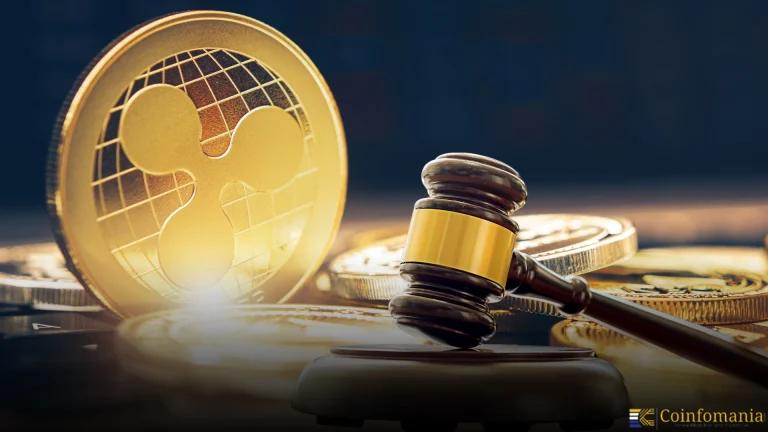Crypto Regulation in Pakistan
The Pakistani stance on cryptocurrencies moved from being hesitant about regulation to taking direct actions for digital currency economic integration. The Pakistani government adopted a new stance toward cryptocurrencies by creating the Pakistan Crypto Council (PCC) during March 2025. Through this initiative the government shows its dedication to make Pakistan a blockchain center for the […]

The Pakistani stance on cryptocurrencies moved from being hesitant about regulation to taking direct actions for digital currency economic integration. The Pakistani government adopted a new stance toward cryptocurrencies by creating the Pakistan Crypto Council (PCC) during March 2025. Through this initiative the government shows its dedication to make Pakistan a blockchain center for the region while attracting foreign capital and developing the digital economy.
Businesses and investors, along with individuals, need to fully comprehend Pakistan’s regulatory framework for cryptocurrencies to participate in this developing market. The State Bank of Pakistan (SBP) together with the Securities and Exchange Commission of Pakistan (SECP), serves as Pakistan’s main regulatory institution for establishing the existing digital asset framework.
Historical Context
The Pakistani government initiated its cryptocurrency restrictions through official regulatory measures. The State Bank of Pakistan issued a directive in April 2018 which banned financial institutions from handling virtual currency transactions because they recognized risks such as fraud and money laundering and volatility. The regulatory requirements forced cryptocurrency traders to shift operations into unregulated marketplaces, thus creating multiple unknown factors in the digital currency market.
The global expansion of cryptocurrencies led Pakistani regulatory bodies to reevaluate their previous stance. The SECP released a consultation paper in November 2020 to explore formal regulatory frameworks for digital assets as part of their serious regulatory framework development process. The change represented a crucial moment, which showed that Pakistan was moving away from total prohibition toward controlled acceptance.
The regulatory path of Pakistan underwent a significant change when the government made its decision in November 2024. The government introduced plans to control cryptocurrencies which established their legal status within the country. The regulatory shift positioned Pakistan among global trends while responding to domestic crypto interest, which led to official economic integration.
Regulatory Framework
The SBP, along with the SECP, functions as Pakistan’s primary regulatory body for cryptocurrency matters. The SBP concentrates on financial stability alongside currency management and monetary policies, but the SECP maintains authority over market regulation, investor protection and securities oversight. The two regulatory bodies have provided essential guidance for developing Pakistan’s crypto sector.
The PCC directs the development of complete licensing and registration frameworks for cryptocurrency exchanges, alongside their associated businesses. The upcoming regulations will establish transparency while building trust among investors through a structured framework for crypto transactions.
The Pakistani crypto environment requires Anti-Money Laundering (AML) and Know-Your-Customer (KYC) requirements as fundamental regulatory components. The Pakistani regulatory authorities work to develop strict measures to combat criminal financial operations based on cryptocurrency use because they understand international AML/KYC standards. The newly established rules enhance Pakistan’s position in international financial markets, which attracts global crypto exchanges and businesses to operate in the market.
The regulatory framework includes taxation as a fundamental component. The Federal Board of Revenue (FBR) is determining crypto taxation methods by considering the implementation of capital gains and income taxes for digital asset trading and investments. The government aims to use digital currencies as formal economic elements while seeking them as new financial resources through this regulatory strategy.
The regulatory status of initial coin offerings (ICOs) and security token offerings (STOs) is still being developed by authorities. The Pakistani regulatory dialogue demonstrates the country’s plans to define the legal position of these offerings to protect investors and advance innovative practices.
Pakistan Crypto Policies
Pakistan now adopts a strategic policy to create beneficial conditions for cryptocurrency operations. The government seeks to establish Pakistan as a blockchain-friendly country through support for crypto businesses and innovation as well as foreign investment. Pakistan utilizes its extensive young population with technological capabilities to develop cryptocurrency adoption, which will drive economic expansion and financial inclusion throughout the nation.
Cryptocurrency mining stands out as a key area that Pakistan is actively pursuing. The government of Pakistan plans to introduce specific electricity rates for crypto mining operations because the country currently has surplus energy resources. The government aims to maximize its unused energy reserves by attracting mining operations to create economic growth.
The government undertakes initiatives that transcend basic regulatory actions. The Pakistan Crypto Council demonstrates the nation’s dedicated approach to blockchain and crypto technologies through its founding. The council has four main duties: to create precise laws, advance blockchain initiatives and support new ideas while building a complete national blockchain framework.
The authorities maintain a firm position on following guidelines even though they have not completely revealed potential penalties for non-compliance with regulations. The lack of compliance will result in legal consequences as market regulators maintain a strong focus on market integrity together with consumer protection and transparency.
Country’s Approach to Crypto Innovation
Pakistan is working on initiatives that follow international best practices to develop innovation within the crypto and blockchain sectors. The PCC leads the initiative to establish regulatory sandboxes, which enable businesses and entrepreneurs to test blockchain solutions and crypto services through controlled oversight from regulators. These initiatives will promote innovation by reducing risks while developing strong market practices.
The use of cryptocurrency by Pakistani businesses together with retail consumers shows a quick acceleration. The cryptocurrency market has attracted between 15 million and 20 million active participants, who make up a notable portion of the population. Multiple business sectors throughout Pakistan now view digital currencies as legitimate financial instruments, which demonstrates rising commercial adoption.
The government also supports blockchain development projects. Different business sectors, such as financial institutions, supply chain operations and public administration departments, are now exploring blockchain implementation. The strategic development positions Pakistan to become a leading force in blockchain innovation, which may revolutionize established economic sectors.
Notable Challenges and Issues
The regulatory framework of Pakistan encounters multiple obstacles during its current development phase. The absence of official regulatory standards produced complicated circumstances that led market participants to experience confusion. The PCC represents progress, but Pakistan needs to provide continuous regulatory clarity to address current ambiguities.
The implementation of regulatory measures creates new obstacles for the enforcement authorities. The distributed and untraceable nature of cryptocurrencies creates obstacles for monitoring and regulatory oversight functions. Pakistani regulatory bodies need to handle strict compliance requirements alongside friendly regulations toward innovation with great care.
Public understanding about cryptocurrency stands as a major issue that needs resolution. Pakistani society shows a dual reaction to cryptocurrencies because technology experts show strong interest while other people remain doubtful because of market instability and security concerns. The acceptance of cryptocurrencies depends on educating the public while running awareness programs and implementing clear regulatory systems.
The Future of Crypto Regulation and Industry Developments
The Pakistan Crypto Council’s recent establishment shows the government’s dedication to accepting cryptocurrencies. The combination of regulatory guidelines and blockchain technology development and industry best practices from Pakistan positions the country to emerge as a crypto-friendly nation.
Future cryptocurrency regulations in Pakistan will advance to a sophisticated level that supports innovation while maintaining consumer protection and financial security standards. The country’s forward-thinking approach will probably draw both domestic and international market participants to invest in the space, which will fuel new economic development.
The regulatory changes in Pakistan create worldwide effects, particularly within South Asian regions. The adoption of blockchain and crypto technology by Pakistan as a regional leader would create a precedent that might transform the financial systems throughout the region.
Conclusion
The strategic direction of Pakistan regarding cryptocurrency has shifted from monitoring to full participation in the digital assets market. The government demonstrates its dedication to digital assets and blockchain technology’s economic potential through recent PCC establishment and a proposed extensive regulatory framework.
The developing crypto landscape creates valuable prospects that appeal to investors and entrepreneurs and those interested in digital currencies. The process requires sustained attention to regulatory changes. The quick-paced global crypto developments require stakeholders to maintain current knowledge so they can effectively manage Pakistan’s complex cryptocurrency landscape.
FAQs About Cryptocurrency Regulations in Pakistan (2025)
1. Does Pakistan’s legal framework support cryptocurrency trading operations during 2025?
The laws affecting cryptocurrency trading are becoming official throughout Pakistan as its acceptance grows during 2025.
2. Through which regulatory bodies do Pakistan control cryptocurrencies?
Two main regulatory agencies in Pakistan exist as SBP alongside SECP.
3. Are cryptocurrency transactions subject to taxation within Pakistan’s legal framework?
The Federal Board of Revenue is developing official guidelines for taxation of cryptocurrency deals.
4. Does Pakistan support cryptocurrency mining activities?
Crypto mining receives support from Pakistan through special electricity rate plans.
5. What would be the consequences of non-compliance with Pakistani crypto regulations?
Financial and legal consequences will apply to non-compliant activities according to regulations that focus on market compliance and investor protection.
Follow us on Google News
Get the latest crypto insights and updates.
Related Posts

Ripple Highlights Custody as Key to $18.9T Tokenized Assets by 2033
Shweta Chakrawarty
Author

Hong Kong SFC Issues New Custody Rules for Crypto Platforms
Shweta Chakrawarty
Author

South Korea and Vietnam eye $150B trade despite Trump tariff
Shweta Chakrawarty
Author